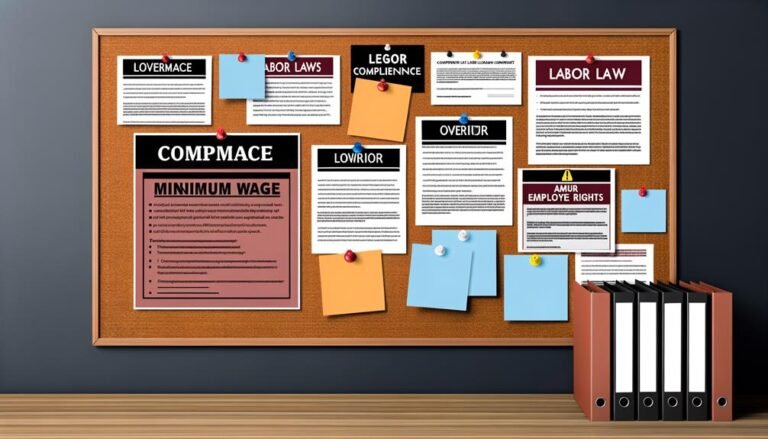Effective Stress Management Skills
In the fast-paced and demanding world we live in, stress has become an inevitable part of our lives. While it is a natural response to certain situations, prolonged or excessive stress can have detrimental effects on our physical and mental well-being.
Understanding how to effectively manage stress is crucial for maintaining a balanced and healthy lifestyle. By implementing practical and proven stress management skills, individuals can not only alleviate the negative impact of stress but also enhance their overall quality of life.
Key Takeaways
- Regular physical exercise helps reduce stress.
- Mindfulness and meditation practices are effective in managing stress.
- Setting boundaries is important for managing stress.
- Seeking social support can help in coping with stress.
Understanding Stress and Its Impact
Understanding stress and its impact is essential for developing effective stress management skills in both personal and professional settings. The impact of stress on health can be profound, affecting both physical and mental well-being. Prolonged exposure to stress can lead to a range of health issues, including high blood pressure, weakened immune system, anxiety, depression, and even heart disease. Recognizing these potential health implications underscores the critical importance of implementing stress management strategies.
Effective stress management strategies encompass a variety of techniques aimed at reducing and coping with stress. These may include regular physical exercise, mindfulness and meditation practices, time management, setting boundaries, seeking social support, and engaging in hobbies or activities that bring joy. Additionally, developing problem-solving skills and learning to adapt to change can also contribute to effective stress management.
Identifying Triggers and Stressors
Frequently overlooked, identifying triggers and stressors is a crucial step in developing effective stress management skills. This process involves recognizing signs that indicate the onset of stress and understanding the specific factors that contribute to it. By acknowledging these triggers, individuals can take proactive measures to manage their emotions and minimize the impact of stress on their overall well-being.
Identifying Triggers and Stressors
- Self-awareness: Encouraging individuals to reflect on their thoughts, feelings, and behaviors to identify patterns that may contribute to stress.
- Environmental factors: Exploring how external stimuli such as noise, overcrowding, or time pressure can act as stressors.
- Interpersonal relationships: Considering the impact of conflicts, communication breakdowns, or toxic relationships on one's stress levels.
- Work-related stressors: Highlighting the significance of workload, deadlines, and job insecurity in triggering stress reactions.
Building Healthy Coping Mechanisms

To effectively manage stress, developing healthy coping mechanisms is essential for maintaining mental and emotional well-being. Two important strategies for building healthy coping mechanisms are mindful eating and exercise routines.
Mindful eating involves paying full attention to the experience of eating and drinking, both inside and outside the body. This means choosing food that is both satisfying and nourishing, acknowledging responses to food (likes, dislikes, or neutral), and becoming aware of physical hunger and satiety cues to guide when to begin and end eating.
Additionally, integrating exercise routines into daily life can significantly improve stress management. Regular physical activity can help reduce anxiety and depression by causing chemical changes in the brain, which can help to positively change your mood. It can also improve sleep, which is often disrupted by stress, and boost self-confidence.
Practicing Mindfulness and Relaxation Techniques
In the realm of stress management, cultivating mindfulness and employing relaxation techniques have proven to be effective strategies.
Two prominent methods include practicing breathing exercises and engaging in body scan meditation.
These techniques can help individuals cultivate a sense of calm and centeredness, providing them with the tools to navigate the challenges of stress more effectively.
Breathing Exercises
Practicing mindfulness and relaxation techniques through breathing exercises can significantly reduce stress and promote a sense of calm and well-being. By incorporating balanced breathing into your daily routine, you can activate the body's relaxation response, leading to a decrease in stress hormones and an increase in feelings of tranquility.
Here are four breathing exercises that can help evoke a sense of peace and relaxation:
- Deep Breathing: Inhale deeply through your nose, hold for a few seconds, and exhale slowly through your mouth.
- 4-7-8 Technique: Inhale for a count of 4, hold for a count of 7, and exhale for a count of 8.
- Box Breathing: Inhale for a count of 4, hold for 4, exhale for 4, and then hold for 4 again.
- Alternate Nostril Breathing: Close one nostril, inhale, then switch and exhale through the other nostril.
Body Scan Meditation
Continuing our exploration of mindfulness and relaxation techniques, let's now turn our attention to the practice of Body Scan Meditation.
Body Scan Meditation is a form of mindfulness practice that promotes the relaxation response in the body. This technique involves bringing mindful awareness to each part of the body, starting from the toes and moving up to the head.
As attention is directed to each body part, individuals are encouraged to release tension and stress, fostering a deep sense of relaxation. By systematically scanning and bringing awareness to each area, individuals can identify and release areas of tension, promoting a state of physical and mental relaxation.
This practice is effective in promoting the relaxation response and fostering a heightened sense of mindful awareness throughout the body.
Time Management and Prioritization

In the realm of stress management, effective time management and prioritization are crucial factors.
Task prioritization techniques and effective time blocking are essential skills that can significantly reduce stress levels and increase productivity.
Task Prioritization Techniques
Effective task prioritization is essential for successful time management and productivity in professional settings. To achieve this, consider the following techniques:
- Time Blocking: Allocate specific time slots for different tasks, allowing focused work without distractions.
- Task Organization: Categorize tasks based on urgency and importance to address high-priority items first.
- Use of Priority Matrix: Implement the Eisenhower Matrix to classify tasks as urgent, important, non-urgent, or non-important, aiding in effective decision-making.
- Regular Reviews and Adjustments: Periodically reassess task priorities and make necessary adjustments to accommodate changes in workload or deadlines.
Effective Time Blocking
To optimize time management and task prioritization, mastering the skill of effective time blocking is crucial in professional settings. Time blocking involves scheduling specific tasks for specific time slots, allowing for better focus and productivity. It is a productivity hack that enhances time organization, time allocation, and schedule optimization. By allocating dedicated time slots for different activities, individuals can minimize distractions and enhance efficiency. The following table illustrates an example of effective time blocking:
| Time | Monday | Tuesday | Wednesday | Thursday |
|---|---|---|---|---|
| 9:00 – 11:00 | Strategic Planning | Meetings | Research | Training |
| 11:00 – 12:00 | Email Management | Project Work | Break | Project Work |
| 1:00 – 3:00 | Client Calls | Creative Work | Analysis | Client Meetings |
Implementing effective time blocking strategies can lead to improved productivity and better work-life balance.
Creating a Supportive Lifestyle and Environment
Establishing a nurturing and conducive environment is essential for effective stress management. Creating a supportive lifestyle and environment can significantly impact an individual's ability to cope with stress. Here are four key elements to consider in order to foster a supportive environment:
- Social Support and Positive Relationships: Cultivating strong social connections and maintaining positive relationships with friends, family, or colleagues can provide a sense of belonging and emotional support. Having a support system to lean on during challenging times can help alleviate stress and promote overall well-being.
- Stress-Free Environment and Clutter-Free Space: Maintaining a tidy and organized living or working space can contribute to a sense of calm and clarity. Minimizing clutter and creating a stress-free environment can help reduce feelings of overwhelm and promote a more peaceful mindset.
- Healthy Lifestyle Choices: Engaging in regular physical activity, consuming a balanced diet, and getting an adequate amount of sleep are crucial components of a supportive lifestyle. These habits can enhance resilience to stress and improve overall mental and physical health.
- Mindfulness Practice: Incorporating mindfulness techniques, such as meditation or deep breathing exercises, into daily routines can promote relaxation and reduce stress levels. Practicing mindfulness can help individuals stay grounded and focused, even in challenging situations.
Conclusion
In conclusion, effective stress management skills are vital for maintaining a balanced and healthy lifestyle.
By understanding stress and its impact, identifying triggers, and building healthy coping mechanisms, individuals can better manage their stress levels.
While some may argue that it's difficult to find the time to practice stress management, prioritizing and incorporating these skills into daily routines can lead to long-term benefits for overall well-being and productivity.






